
Videos



Ronna Hauser, PharmD, senior vice president of policy and pharmacy affairs at NCPA, discusses concerns about the implementation of the MDPNP.
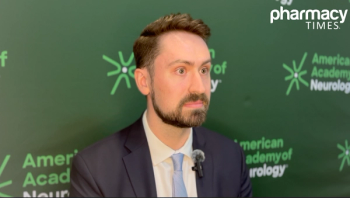
Philip Kuball, MD, neurology resident at NYU Langone Health, highlights the integral role of pharmacists in monitoring patient eligibility, managing dosing schedules, and ensuring safe medication interactions for lecanemab treatment in Alzheimer disease.
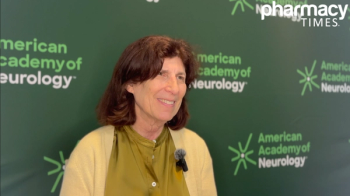
Lauren B. Krupp, MD, FAAN, provides comprehensive guidance on treating pediatric multiple sclerosis, emphasizing early intervention, high-efficacy therapies, and holistic family support.
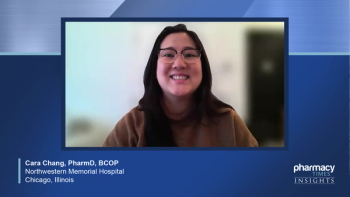
A panelist discusses how waiting for molecular testing results before initiating treatment for non–small cell lung cancer (NSCLC) is crucial because patients with EGFR mutations can avoid chemotherapy and immunotherapy in favor of targeted oral agents like osimertinib, which offer survival benefits with minimal toxicity compared to traditional treatments, while premature immunotherapy could cause severe immune-related adverse events that might preclude later use of more appropriate targeted therapies.

A panelist discusses how non–small cell lung cancer presents significant treatment challenges due to its prevalence, high mortality rate, poor 5-year survival outcomes, and the difficulty of managing patients with advanced disease who often have poor performance status and multiple metastases, emphasizing the importance of pharmacist involvement for proper dosing, growth factor support, and comprehensive patient education about chemotherapy.

UPMC enhances care for patients with heart failure through integrated pharmacy and cardiology team collaboration.

A recent analysis from NCPA showed potential weekly cash flow shortfalls for pharmacies and annual revenue losses.

Iman Ahmed, PharmD, BCOP, shared key insights about how social determinants of health impact treatment access and outcomes for patients with leukemia.

Zahra Mahmoudjafari, PharmD, BCOP, FHOPA, shared insight from the HOPA Annual Meeting 2025.

Arefa Bacchus, PharmD, shared key insights about the use of POMP therapy in patients with acute lymphoblastic leukemia (ALL).

Monica Sawiris, PharmD, said there were noticeable differences in toxicities between each regimen.

Erin Lexner, PharmD, BCPS, discussed her team’s experience transitioning to outpatient BEAM from inpatient CBV.

Shelby Quinn, PharmD, BCOP shares insights about treatment using osimertinib in early lines.

Panelists discuss how evolving clinical guidelines for intensive low-density lipoprotein cholesterol (LDL-C)–lowering therapies have shaped personalized treatment approaches through risk stratification, with different targets for primary vs secondary prevention and consideration of genetic factors when determining appropriate statin intensity.

Panelists discuss how cardiology practice has evolved toward more aggressive low-density lipoprotein cholesterol (LDL-C)–lowering strategies across specialties, with current guidelines generally recommending targets below 70 mg/dL for high-risk patients and even lower thresholds (below 55 mg/dL) for very high-risk individuals, though these targets require personalization based on age, comorbidities such as diabetes and hypertension, and other cardiovascular risk factors.
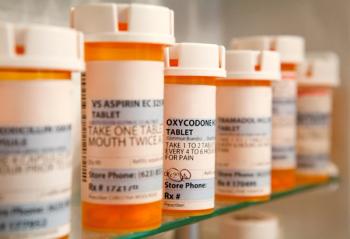
Expert provides a comprehensive overview of drug diversion prevention in pharmacy settings.

Christine Barrett, PharmD, BCOP, shares insights, challenges, and advice for oncology pharmacists navigating neoadjuvant therapy.

Jessica Davis, PharmD, BCOP highlights the role of pharmacy technicians in ambulatory oncology clinic settings.

Lauren Dietz, PharmD, highlighted the role of oncology pharmacists in guiding prophylaxis decisions to optimize transplant outcomes.

Julia Ziegengeist, PharmD, BCOP offers insights for pharmacists navigating adjuvant and neoadjuvant treatment of breast cancer.

Amir Ali, PharmD, BCOP, and Allison Hsieh, PharmD share insights from their presentation about cytokine release syndrome, ICANS, and CAR T-cell therapy.

Alexandra Wolff, PharmD, BCOP, FHOPA, was awarded a fellow of HOPA at the 2025 annual meeting.

Panelists discuss how there have been many new agents being studied and released at the current time and how the development of these agents is moving at a rapid pace. The adverse effect profiles of newer antibody-drug conjugates create a greater opportunity for pharmacists to be involved in toxicity management.

Mya Tran, PharmD, BCOP, offers insights for navigating the complex treatment landscape for non-small cell lung cancer.

Michael Arnold, PharmD, discussed the role of oncology pharmacists in enhancing biomarker testing for patients with metastatic colorectal cancer.

Nilufer Ertekin-Taner contrasts current one-size-fits-all Alzheimer disease treatments with the promise of precision medicine and emphasizes the vital role of collaborative, multidisciplinary care.

Erin Harrell, PharmD, offers insights about managing peripheral neuropathy in patients receiving bortezomib.
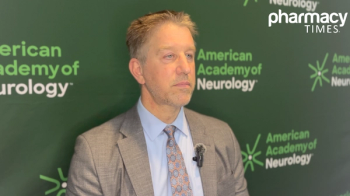
The HERCULES trial demonstrates tolebrutinib's potential to slow disability progression in non-relapsing secondary progressive multiple sclerosis, offering a new treatment option for patients with limited therapeutic choices.
